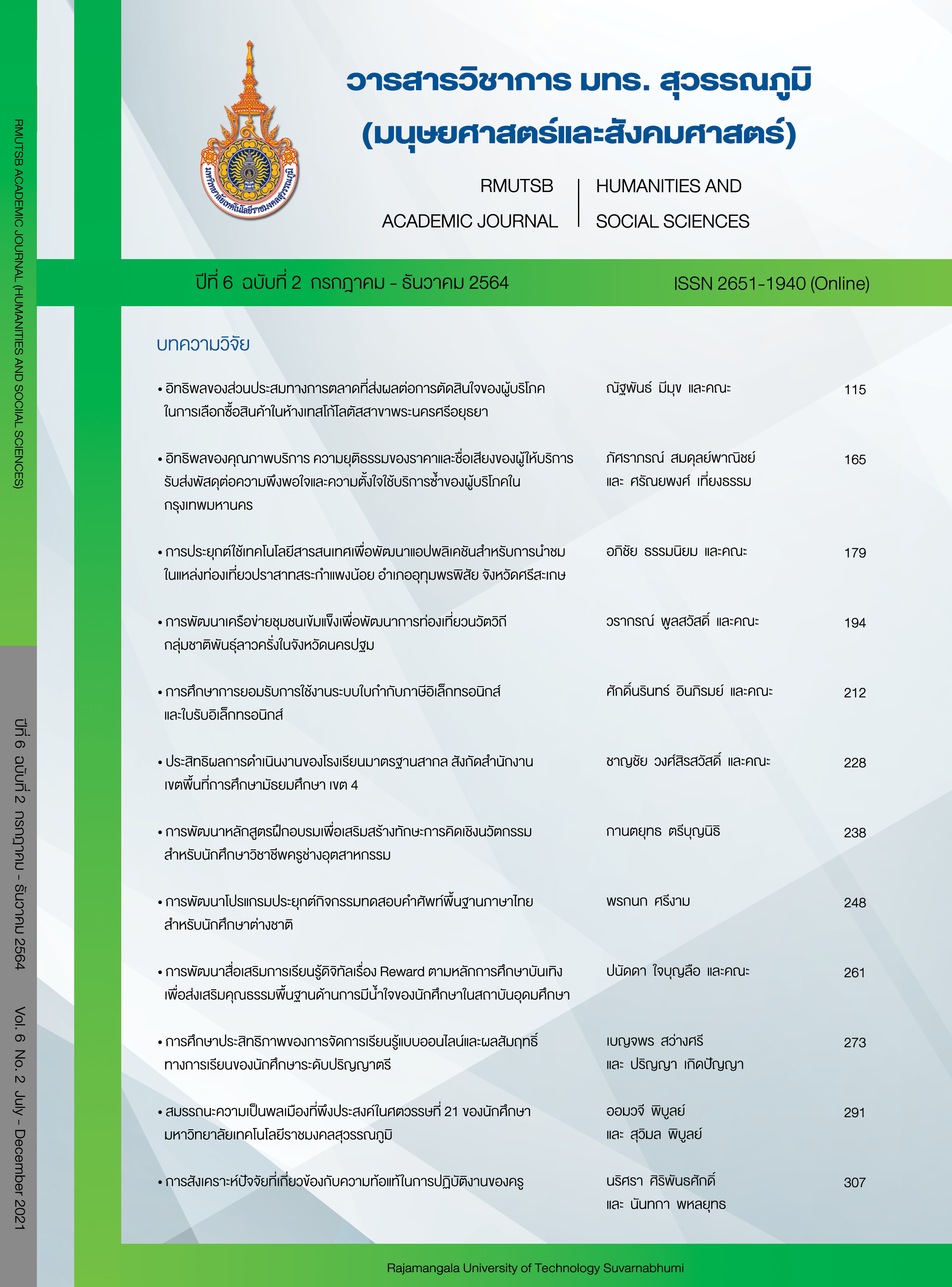Effectiveness of school operations with international standards affiliated with Office Secondary Education Area, Region 4
Main Article Content
Abstract
The objectives of this research were to study and compare the operating effectiveness of world class standard schools under the secondary educational service area office 4 which were classified by educational levels and work experience. The total of 346 samples were teachers of world class standard schools under the secondary educational service area office 4. The size was determined using the table of Krejcie, & Morgan and selected using multi stage random sampling. The questionnaire used to collect the data was a five-rating scale questionnaire with content validity from 0.80-1.00 and the reliability at 0.98. The data were analyzed by mean, standard deviation, t-test independent and one-way ANOVA with F-test and testing the couple of Scheffe. Research findings were as follows.
Firstly, operating effectiveness of the schools in overall was at highest level. Each aspect ranked from high to low level were: students, teaching and learning management, administration, basic factors, personnel, and curriculum, respectively.
Secondly, the comparison results of the differences in the operating effectiveness of the schools classified by educational levels and work experience overall was not difference, and when considering each aspect, the curriculum aspect was statistically significant different at the 0.05 level.
Article Details
References
Ayeni, A. J., & Afolabi, E. I. (2012). Teachers’ instructional task performance and quality assurance of students’ learning outcomes in Nigerian secondary schools. International Journal of Research Studies in Educational Technology, 1(1), 33-42.
Best, J. W. (1977). Research in education (3rd ed.). Englewood Cliffs, New Jersey: Prentice-Hall.
Fullan, M. (2005). Leadership and sustainability: System thinkers in action. California: Corwin Press.
Hart, C., & Shoolbred, M. (1993). Organizational culture, rewards and quality in higher education. Quality Assurance in Education, 1(2), 22-29.
Krejcie, R. V., & Morgan, D. W. (1970). Determining sample size for research activities. Educational and Psychological Measurement, 30(3), 607-610.
Kustulasari, Ag. (2009). The international standard school project in Indonesia: A policy document analysis (Master’s thesis). The Ohio State University, Ohio.
Office of the Basic Education Commission. (2018). The operational guidelines world-class standard school. Bangkok: Office of Administration of Upper Secondary Education. (in Thai)
Phetchabun, S., Pupat, P., & Wongsirasawat, C. (2019). Administrator role indicators for encourage efficiency on learning management in school: Confirmatory factor analysis. Mediterranean Journal of Social Sciences, 10(4). 125-132.
Reid, K., Hopkins, D., & Holly, P. (1998). Towards the effective school. Oxford: Basie Blackwell.
Sakulpradit, K. (2016). Quality award criteria of the Office of the Basic Education Commission: OBECQA 2559-2560. Bangkok: Office of Administration of Upper Secondary Education, Office of the Basic Education Commission. (in Thai)
Stoll, L., & Louis, K. S. (2007). Profession learning communities: Divergence, depth and dilemmas. Berkshire, England: Open University Press.
Tanyarattanasrisakul, M. (2017). The professional learning community: Practices guidelines for teachers. RMUTSB Academic Journal (Humanities and Social Science), 2(2), 214-228. (in Thai)
Tipnonvang, P. (2017). Factors affecting the success of world-class standard school administration under the office of secondary educational service area 22 (Master’s thesis). Sakon Nakhon Rajabhat University, Sakon Nakhon. (in Thai)


